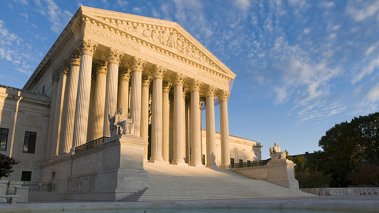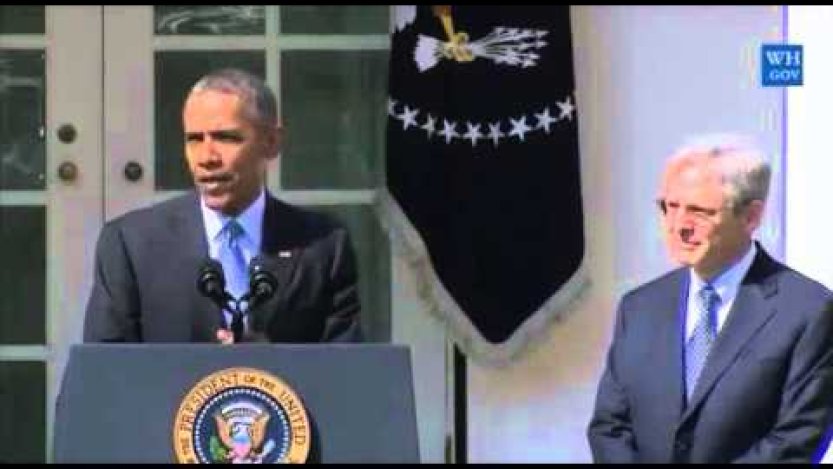Table of Contents
President Obama Highlights SCOTUS Nominee Merrick Garland’s Defense of Student Free Speech

This morning, President Obama nominated Merrick Garland to the Supreme Court of the United States. Garland is currently the chief judge of the United States Court of Appeals for the District of Columbia Circuit.
In his speech from the Rose Garden, President Obama highlighted Garland’s defense of a fellow student’s First Amendment rights, even though he disagreed with what the student said, as indicative of his character:

People respect Merrick’s deep and abiding passion for protecting our most basic constitutional rights. It’s a passion, I’m told, that manifested itself at an early age. And one story is indicative of this. It’s notable.
As valedictorian of his high school class, he had to deliver a commencement address. The other student speaker that day spoke first and unleashed a fiery critique of the Vietnam War.
Fearing the controversy that might result, several parents decided to unplug the sound system and the rest of the student’s speech was muffled. And Merrick didn’t necessarily agree with the tone of his classmate’s remarks nor his choice of topic for that day, but stirred by the sight of a fellow student’s voice being silenced, he tossed aside his prepared remarks and delivered instead on the spot a passionate, impromptu defense of our first amendment rights.
It was the beginning of a lifelong career, as a lawyer and a prosecutor and as a judge devoted to protecting the rights of others.
This is not the first time President Obama has highlighted the importance of being exposed to differing views in the educational setting. Last fall, President Obama urged that students and the colleges they attend ensure that differing, even caustic, views be heard and ideas exchanged:
Look, the purpose of college is not just, as I said before, to transmit skills. It’s also to widen your horizons; to make you a better citizen; to help you to evaluate information, to help you make your way through the world; to help you be more creative. The way to do that is to create a space where a lot of ideas are presented and collide and people are having arguments and people are testing each other’s theories, and over time people learn from each other because they’re getting out of their own narrow point of view and having a broader point of view. [...]
It’s not just sometimes folks who are mad that colleges are too liberal, that have a problem; sometimes, you know, there are folks on college campuses who are liberal, and maybe even agree with me on a bunch of issues, who sometimes aren’t listening to the other side. And that’s a problem too. I was just talking to a friend of mine about this, you know, I’ve heard some college campuses where they don’t want to have a guest speaker who, you know, is too conservative. Or, they don’t want to read a book if it has language that is offensive to African Americans, or somehow sends a demeaning signal towards women. And, you know, I gotta tell you that I don’t agree with that either. I don’t agree that you, when you become students at colleges, have to be coddled and protected from different points of view.
While FIRE takes no position on the relative merit of Garland’s nomination to the highest court in our land, we are pleased that President Obama continues to recognize the importance of defending students’ right to free expression, especially where one finds that speech uncomfortable or offensive. If Garland is ultimately confirmed to the Supreme Court, FIRE hopes that his experience will be reflected in a robust defense of free speech.
Recent Articles
FIRE’s award-winning Newsdesk covers the free speech news you need to stay informed.

A third of Stanford students say using violence to silence speech can be acceptable

Stanford president and provost cheer free expression in open letter to incoming class

FIRE survey shows Judge Duncan shoutdown had ‘chilling effect’ on Stanford students
